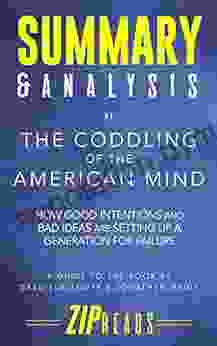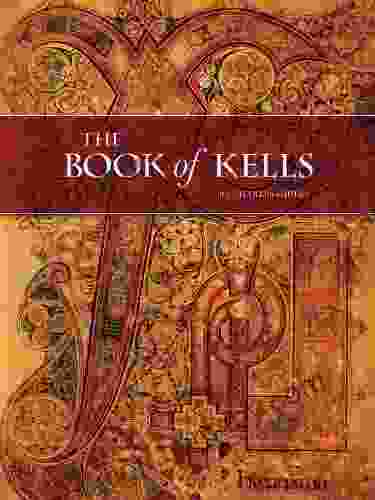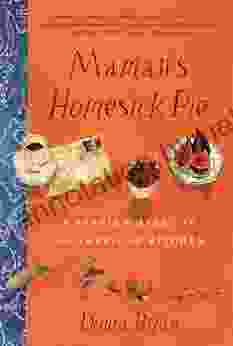The Coddling of the American Mind: A Deep Dive into the Book

In their book, The Coddling of the American Mind, Greg Lukianoff and Jonathan Haidt argue that American universities have become too protective of students, creating a generation of young people who are unable to handle criticism or tolerate dissenting opinions. This, they argue, is having a negative impact on students' intellectual and emotional development, and is setting them up for failure in the real world.
The Three Great Untruths
Lukianoff and Haidt identify three "great untruths" that they believe are contributing to the coddling of American students:
4.6 out of 5
| Language | : | English |
| File size | : | 1722 KB |
| Text-to-Speech | : | Enabled |
| Screen Reader | : | Supported |
| Enhanced typesetting | : | Enabled |
| Print length | : | 61 pages |
| Lending | : | Enabled |
- The Untruth of Fragility: This is the belief that students are too fragile to handle criticism or exposure to ideas that they disagree with. This belief leads to the creation of safe spaces and trigger warnings, which shield students from potentially upsetting or offensive material.
- The Untruth of Emotional Reasoning: This is the belief that emotions are always valid and should be the basis for making decisions. This belief leads to the idea that students should be protected from any experiences that might make them feel uncomfortable or distressed.
- The Untruth of Us vs. Them: This is the belief that the world is divided into two opposing camps, with "us" being the good guys and "them" being the bad guys. This belief leads to the demonization of those who hold different views, and makes it difficult to have constructive dialogue or debate.
The Negative Impact of Coddling
Lukianoff and Haidt argue that the coddling of American students is having a number of negative consequences, including:
- Reduced intellectual development: Students who are not exposed to challenging ideas or dissenting opinions are less likely to develop critical thinking skills or the ability to tolerate ambiguity.
- Increased emotional fragility: Students who are protected from any experiences that might make them feel uncomfortable or distressed are more likely to be anxious and depressed.
- Diminished civic engagement: Students who are taught to believe that the world is divided into "us" and "them" are less likely to be interested in participating in public life or engaging with people who hold different views.
What Can Be Done?
Lukianoff and Haidt offer a number of suggestions for how to address the problem of coddling in American universities. These include:
- Exposing students to challenging ideas: Students should be exposed to a variety of viewpoints, even if they disagree with them. This will help them to develop critical thinking skills and the ability to tolerate ambiguity.
- Encouraging students to engage in civil discourse: Students should be encouraged to have respectful conversations with people who hold different views. This will help them to develop the skills of empathy and persuasion.
- Teaching students about the importance of resilience: Students should be taught that failure is a part of life, and that it is important to learn from our mistakes. This will help them to develop the resilience they need to succeed in the real world.
The Coddling of the American Mind is a timely and important book. It offers a much-needed critique of the current state of higher education in America, and it provides a number of valuable suggestions for how to address the problem of coddling. If you are concerned about the future of American democracy, then I highly recommend reading this book.
Buy The Coddling of the American Mind on Our Book Library
4.6 out of 5
| Language | : | English |
| File size | : | 1722 KB |
| Text-to-Speech | : | Enabled |
| Screen Reader | : | Supported |
| Enhanced typesetting | : | Enabled |
| Print length | : | 61 pages |
| Lending | : | Enabled |
Do you want to contribute by writing guest posts on this blog?
Please contact us and send us a resume of previous articles that you have written.
 Book
Book Novel
Novel Page
Page Chapter
Chapter Text
Text Story
Story Genre
Genre Reader
Reader Library
Library Paperback
Paperback E-book
E-book Magazine
Magazine Newspaper
Newspaper Paragraph
Paragraph Sentence
Sentence Bookmark
Bookmark Shelf
Shelf Glossary
Glossary Bibliography
Bibliography Foreword
Foreword Preface
Preface Synopsis
Synopsis Annotation
Annotation Footnote
Footnote Manuscript
Manuscript Scroll
Scroll Codex
Codex Tome
Tome Bestseller
Bestseller Classics
Classics Library card
Library card Narrative
Narrative Biography
Biography Autobiography
Autobiography Memoir
Memoir Reference
Reference Encyclopedia
Encyclopedia Donia Bijan
Donia Bijan Tim Notier
Tim Notier J T R Brown
J T R Brown Des Hewitt
Des Hewitt Donald L Price
Donald L Price Desiree Trattles
Desiree Trattles Dominic Roskrow
Dominic Roskrow December Dawne
December Dawne Denis O Connor
Denis O Connor Denise Long
Denise Long Dennis Snow
Dennis Snow Dl Acken
Dl Acken Robert D Armstrong
Robert D Armstrong Don Oberdorfer
Don Oberdorfer Harriet De Winton
Harriet De Winton William J Baumol
William J Baumol Don Seddon
Don Seddon Wallace Wang
Wallace Wang Jakob Tanner
Jakob Tanner Richard Pikesley
Richard Pikesley
Light bulbAdvertise smarter! Our strategic ad space ensures maximum exposure. Reserve your spot today!
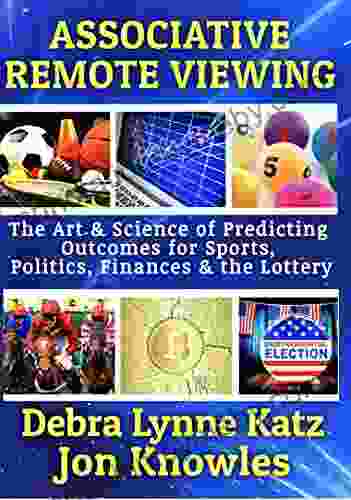
 Zachary CoxThe Art and Science of Predicting Outcomes: A Comprehensive Guide to Sports,...
Zachary CoxThe Art and Science of Predicting Outcomes: A Comprehensive Guide to Sports,...
 Ralph Waldo EmersonYou're Wearing That: Uncover the Secrets of Style and Unleash Your Inner...
Ralph Waldo EmersonYou're Wearing That: Uncover the Secrets of Style and Unleash Your Inner... James JoyceFollow ·12.8k
James JoyceFollow ·12.8k Henry JamesFollow ·9.7k
Henry JamesFollow ·9.7k Cristian CoxFollow ·19k
Cristian CoxFollow ·19k August HayesFollow ·3.9k
August HayesFollow ·3.9k Andres CarterFollow ·6.3k
Andres CarterFollow ·6.3k Tyler NelsonFollow ·4.6k
Tyler NelsonFollow ·4.6k Houston PowellFollow ·13.5k
Houston PowellFollow ·13.5k Chris ColemanFollow ·4.8k
Chris ColemanFollow ·4.8k

 Cruz Simmons
Cruz SimmonsGuide To Pencak Silat Kuntao And Traditional Weapons:...
Immerse yourself in the captivating world of...

 Dalton Foster
Dalton FosterUnlock Your Financial Freedom: Dive into the ABCs of Real...
Are you ready to embark on a...

 George Orwell
George OrwellThe Advanced Guide to Real Estate Investing: Your...
Are you ready to embark on...
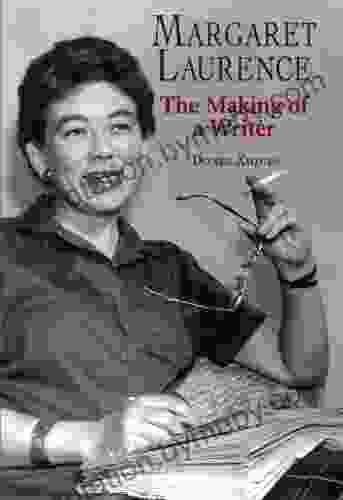
 Will Ward
Will WardMargaret Laurence: The Making of a Writer
Margaret Laurence (1926-1987) was one of...
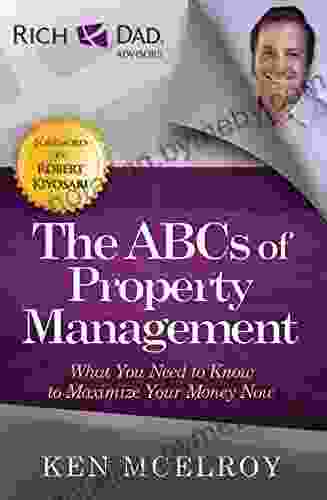
 Jorge Amado
Jorge AmadoThe ABCs of Property Management: A Comprehensive Guide...
Owning and managing rental...
4.6 out of 5
| Language | : | English |
| File size | : | 1722 KB |
| Text-to-Speech | : | Enabled |
| Screen Reader | : | Supported |
| Enhanced typesetting | : | Enabled |
| Print length | : | 61 pages |
| Lending | : | Enabled |


